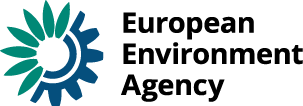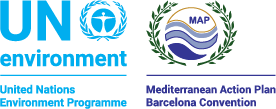Assessing H2020/NAP Water cluster, 9-10 July 2019, Marseille, France
On 9-10 July 2019, water experts from Mediterranean countries gathered in Marseille to review the progress on the H2020/NAP water cluster indicators at the national and regional level and to further engage in the development of the water thematic assessment as part of the regional H2020 indicator-based assessment report. The workshop, organized by the European Environment Agency (EEA) as part of the EU-funded project European Neighborhood Instrument - Shared Environmental Information System (ENI SEIS II South Support Mechanism), consisted of a number of informative and interactive group sessions. It provided the country representatives from Egypt, Israel, Libya, Morocco, Palestine, Tunisia, and Bosnia and Herzegovina the opportunity to enhance capacities on the use of indicator-based assessments to inform national policy, to share their national experiences and to elaborate on illustrative case studies. The workshop benefited from the participation of representatives from key regional organizations and projects, including UN Environment/Mediterranean Action Plan (UN Env MAP), Regional Activity Centre for Information and Communication (INFO/RAC), Plan Bleu, European Topic Centre on Inland, Coastal and Marine waters (ETC-ICM), EMWIS-SEMIDE, SWIM/H2020 Support Mechanism project and Deltares. Through their interventions, these participants highlighted synergies with other ongoing initiatives in the Mediterranean region (e.g. the development of the 2019 State of Environment and Development report, the assessment of the Regional Plans undertaken by UN Env MAP, progress of the InfoMAP Node to support reporting of the H2020/NAP related data sets etc.) and elsewhere (e.g. the activities related to the Water Governance Initiative of the OECD) ). This was the third workshop in the series of thematic workshops as part of the ENI SEIS II South Support Mechanism project, following the H2020/NAP industrial emissions cluster workshop (19-20 March, Tirana) and the H2020/NAP waste and marine litter cluster workshop (5 April, Podgorica), organized by UN Env MAP.
In an interactive session linking water indicators to the H2020 thematic assessment, participants recommended considering the following points:
- Lack of control on industrial emissions and their effect on water quality
- An overall improved regional trend in sanitation, yet some areas are still lagging behind
- Lack of paralleled advancement in wastewater treatment
- Data sharing between institutions still remains an issue – appropriate agreements are still not in place
- Data availability has not improved significantly, taking into consideration the increased demand for data in view of the SGDs
- Despite efforts to tackle environmental issues, geopolitical instability and conflicts hinder their impact on the ground
- There is room for improving integrated water governance at the national level and for translating political commitment to the operational level
- Addressing issues specific to countries and inclusion of illustrative case-studies.
More information available here


